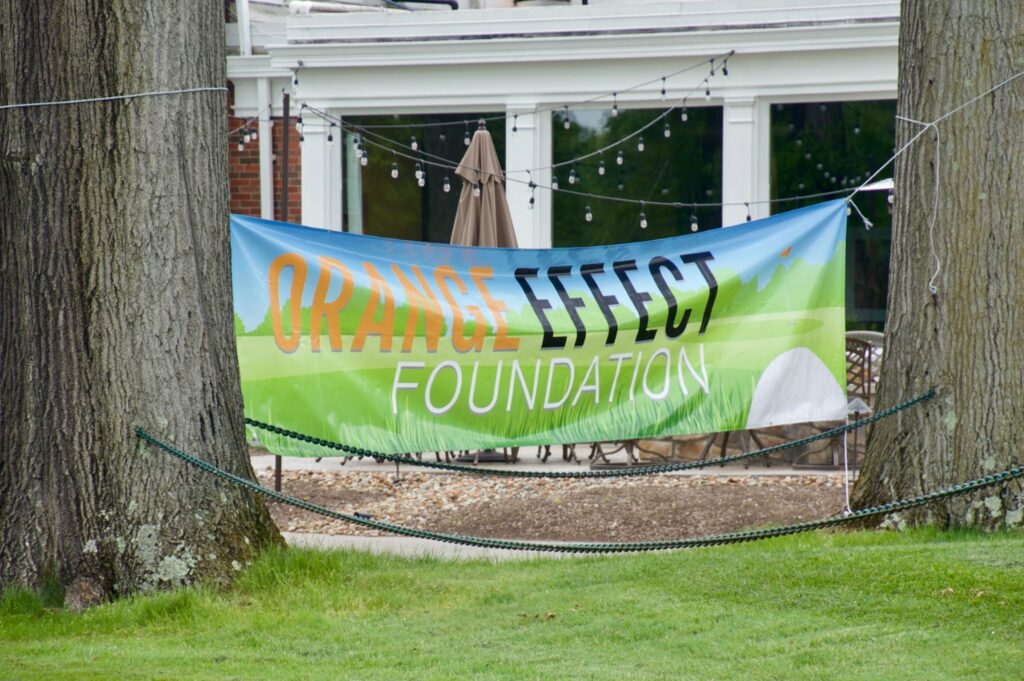
The Orange Effect Foundation just completed their 15th Annual Golf for Autism outing. It was a huge success and one of their two big golf fundraising events that provide funding for children who need speech therapy. I am not a golfer but volunteered to help out for this event – you know, selling raffle tickets, taking pictures, and of course, serving beer – things I know very well how to do!! However… I all of a sudden found myself driving a golf cart, selling skins and mulligans, and being on a tee for the first time in my life – things I know little about, as well as the how and what to do! I repeat, I do not golf, which makes me think of this lovely speech therapy strategy called Social Stories.
If you have had a child with autism or have worked with a child with autism, you definitely are familiar with social stories. These are stories written with the child to help teach them what the “expected behavior” is for situations that may not be clear to them or that may be challenging for them. You provide the child with some descriptive statements about the situation and then a directive statement about what the behavior should be. It typically has a perspective statement as well. You include lots of pictures and personalize it to that specific child. It is a great strategy to teach that child what to expect and how to respond to situations, nuance to interpersonal communication, and emotional regulation.
For example, a Going to the Movies Social Story: I love movies. I like to go to the movie theatres with my family. Theatres are dark and quiet. I need to whisper if I need to talk to my family. If I talk loud, others will not hear the movie and they will get mad at me. I like going to the movies, so I will whisper when I’m there.
So here I am driving a golf cart…Hmmm am I allowed to go off the path?? Can I move my cart when someone’s about to putt?? What is a mulligan? Yes, I need a social story (or two)! Golfing is fun (so they say). The course is beautiful. When someone is teeing off, it is best not to talk, they need to concentrate. I don’t want my friend to miss the ball, so I will be quiet! And then there is “replace your divot” or is it “fix your divot?”

So, my story goes…Sometimes when you’re golfing, you hit the ball and it goes sailing right where you want it. I like that, but sometimes dirt goes flying instead of your ball. I don’t like that and I feel myself getting mad. I want to throw my club. I need to take a deep breath, mumble those choice words, and then fix my divot! If I do this, I get to continue golfing with my friends!
Our lives are full of lots of situations that are new and perhaps sometimes a little anxiety producing. But for the most part, most of us are equipped with the skills to navigate them with some success (as long as we had our coffee and remembered our deodorant!) One of the many goals of speech therapy when working with children with autism is teaching them the tools to navigate these situations and interactions in the most effective and appropriate manner. Because we now know, everybody can benefit from a social story or two!!

